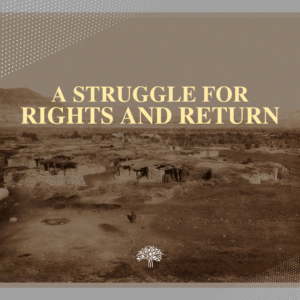By Lydia Alaiadi
Mahmoud Abbas, the 87-year-old president of the Palestinian National Authority and the State of Palestine, has been in power since 2005. And even though he was supposed to end his term fourteen years ago, he still rules over Palestine despite an overwhelming distrust in his character and abilities.
The Palestinian Open Letter
On Monday, September 11, Palestinian academics, activists, writers, and more published an open letter that condemned Mahmoud Abbas’s antisemitic comments, which were made earlier this month.
Notably, Abbas stated that Hitler killed Jews because of their “social role” and not for their religion, which is factually incorrect according to historical research.
The letter reads: “Having held onto power nearly a decade and a half after his presidential mandate expired in 2009, supported by Western and pro-Israel forces seeking to perpetuate Israeli apartheid, Abbas and his political entourage have forfeited any claim to represent the Palestinian people and our struggle for justice, freedom, and equality, a struggle that stands against all forms of systemic racism and oppression”.
It has not been the first time, nor will it be the last, that Abbas has faced public condemnation from the Palestinians. He has been accused of corruption since the previous century. Additionally, his sons have been profiting from doing business in the United States and have been known to have made personal deals with Israel. In 2021, another scandal broke when Nizar Banat was beaten to death by a PA squad that took him from his home. Banat, a Palestinian activist and human rights defender, questioned, opposed, and publicly condemned Abbas for his corruption.
Most importantly, Abbas’s ruling has been described as autocratic after he refused to hold elections so Hamas wouldn’t come to power. At the same time, many critical international stakeholders consider Hamas as a terrorist organisation, posing damage to the negotiations between Palestine and any other actor. This leaves Abbas as a viable option for now.
Abbas’ role in the Oslo Accords
Abbas has had an upward trend of growing unpopular since 2005, with all the corruption charges and his alleged involvement as a KGB agent in the 1980s. Before all that, he was known as one of the architects of the Oslo Accords on September 13 1993. When he took over as the PA’s leader, in 2005, he was welcomed with unlimited support.
In the Oslo Accords, the leaders of Palestine at the time officially recognised Israel as a legitimate state. While the Accords were supposed to grant mutual recognition and cooperation, experts have said that Israel was never interested in working with Palestine, as the deal was only a ploy for Israel’s economic and security dominance over the Palestinians.
Osamah Khalil, US and Middle East history professor at the University of Syracuse, told Al Jazeera “Israel had no intention of agreeing to the emergence of a viable, contiguous, and independent Palestinian state. Israel was able to pursue its occupation and settlement policies with the political cover of endless negotiations“. While Abbas also has issues with the Israeli government, his fight with Hamas lessens the tensions between him and Israel.
Is Abbas benefitting Palestine?
Amongst the many reports of him being sick and the false news of his death, Abbas’ time in power seems very limited anyway. His successor is challenging to predict, and their role for the sake of Palestine is even harder.
If his supporters take over, it will be very difficult for uncorrupted Palestinian activists to remain in the country to support their people. If Hamas takes over, Israel is well prepared to launch more catastrophic attacks on the people of Palestine. In a very odd way, the autocratic Abbas is keeping some balance in Palestine, mainly because the alternatives can be even more devastating for Palestinians. In the meantime, this power struggle is giving way to alternative scenarios about what could happen once he dies or is forced to leave (though the latter is unlikely). When the day comes, journalists call the succession to Abbas The “Game of Thrones” of Palestine.
Only if a leader gets international support from major actors known for their corruption will Palestine have a legitimate way to fight for its recognition, leading Israel to re-open the conversation about creating a new deal. However, most outcomes after Abbas’ death are set to disfavour Palestine more than its current status quo.




